Malala devoted to be the Voice of the unheard Burundian Refugee Girls in Rwanda
Malala devoted to be the Voice of the unheard Burundian Refugee Girls in Rwanda

Mahama Refugee Camp – Rwanda. Just two days after her 19th birthday, the youngest Nobel Peace Prize Laureate and Pakistani advocate for girls’ education, Malala Yousafzai, visited Rwanda for the first time to meet with Burundian refugees in the country’s sixth and largest refugee camp – Mahama camp.
As Mahama camp hosts 17,519 school-aged children forced to flee, Malala voiced her concern that education for children refugees should be strengthened. “Refugees are the future generation and have the opportunity to succeed in their life, all they need is quality education,” she said during her visit to Mahama refugee camp.
The UN Refugee Agency in Rwanda welcomed Malala’s visit to refugees and encouraged the great work she is doing in advocating for girls’ education, especially for refugees.
“It is a great honour for us and for the refugees to have a girl who fights for education so as to shed light on the future of refugees. In our case we hope that this visit will help to further mobilize public opinion in favour of refugees in Rwanda generally but particularly Burundian refugees,” Saber Azam, UNHCR representative in Rwanda said.
In Mahama, home to nearly 50,000 Burundians who have fled as a result of election-related tensions since April 2015, Malala embraced refugee girls and walked hand-in-hand with them as they made their way through the dry and dusty camp. She highly praised refugee girls’ courage in pursuing their education despite their difficult situation and brought them a message of hope.
Malala said she came to Mahama to draw attention to the global refugee crisis, noting that each year on her birthday, in Collaboration with UNHCR, she chooses a region where girls' education is neglected.
“It is my nineteenth birthday, and every year I decide to go to a country where girls are facing issues. This year I decided to go to Kenya and Rwanda, to speak out for girls who are refugees and who are facing many problems like education, sexual violence, etc.”
Malala’s message was aimed at refugees but also to the international community. “It is our responsibility to drag the attention of world leaders to these refugee children as well. I am here to speak for my unheard sisters of Burundi, living in this refugee camp striving for education every day,” she added.
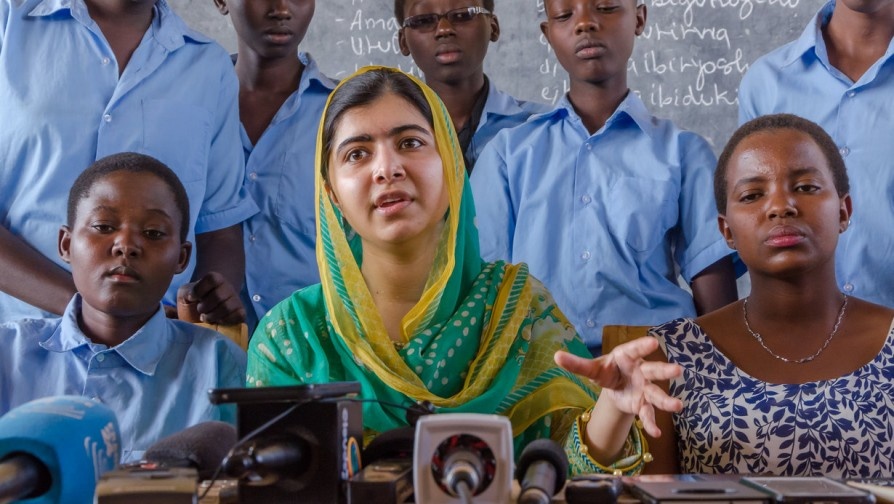
For refugee children driven from their home, education is one of the most basic rights that can restore their hope and dignity. This is why UNHCR ensures that refugee children have access to education including in Rwanda. Education also can bring a semblance of normalcy to the otherwise very different, and very difficult, life in a refugee camp. Malala urged the international community in general, but also Rwanda in particular, to provide quality education to refugee children.
“I am here to speak for my unheard sisters of Burundi, living in this refugee camp striving for education every day.”
“Here in Rwanda, it was amazing meeting these young girls. […] They have inspired me to believe that our future generation has the potential to go far in their life and have the potential to succeed in their life. All they need is quality education,” she said.
In partnership with ADRA, UNHCR ensured that more than 47,940 refugee children country-wide were enrolled in pre-primary, primary and secondary schools, and 104 refugee students enrolled in universities. In order to promote integration, where possible UNHCR builds capacity of schools located near refugee camps, to build more classrooms and hire and train teachers, so refugees and host community children attend school side by side.
Malala also drew attention to the challenges faced by refugees in accessing quality education in the camp. “Education is the only tool that can empower these refugee girls but unfortunately in this camp there are students who cannot have access to education, and there are also reasons for it,” she said.
Malala said that the main challenge for refugee girls’ education is lack of funding from the international community. She commended the hard work done by UNHCR and the Government of Rwanda in empowering refugee girls through education but highlighted the importance of building on these efforts.
“My request on behalf of these girls will be to remind all international donors and countries that they should make education the top priority and should invest in refugee children, it is their future,” she said.
Malala visited Mahama refugee camp accompanied by her father Ziauddin Yousafzai, Minister of MIDIMAR Honourable Seraphine Mukantabana, UNHCR representative in Rwanda Mr. Saber Azam and a delegation from Malala Fund, a fund whose aim is to raise girls' voices and ensure every girl has access to 12 years of free, safe, quality primary and secondary education.
In Rwanda, UNHCR co-leads the response for refugees with the Government of Rwanda’s Ministry of Disaster Management and Refugee Affairs (MIDIMAR). UNHCR’s responsibility includes ensuring protection of refugees, finding durable solutions for refugees; and providing multisectoral assistance. UNHCR assists refugees living in six refugee camps, three reception/transit centers, and also those living in urban areas.
The total needs required for 2016 including special situations for refugee response in Rwanda are estimated at USD 105.5 million, however thus far only USD 25.7 million has been received by UNHCR and other agencies, representing 24% of requirements.
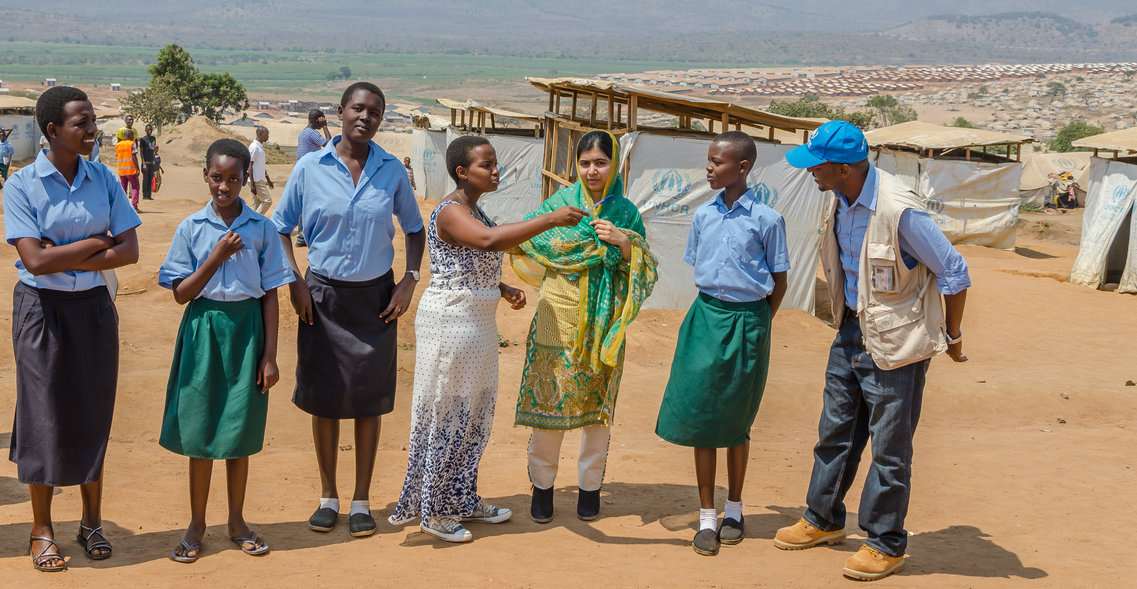
Burundian refugee girls welcome Malala when she entered Mahama refugee camp [Photo/ UNHCR – Shaban Masengesho]
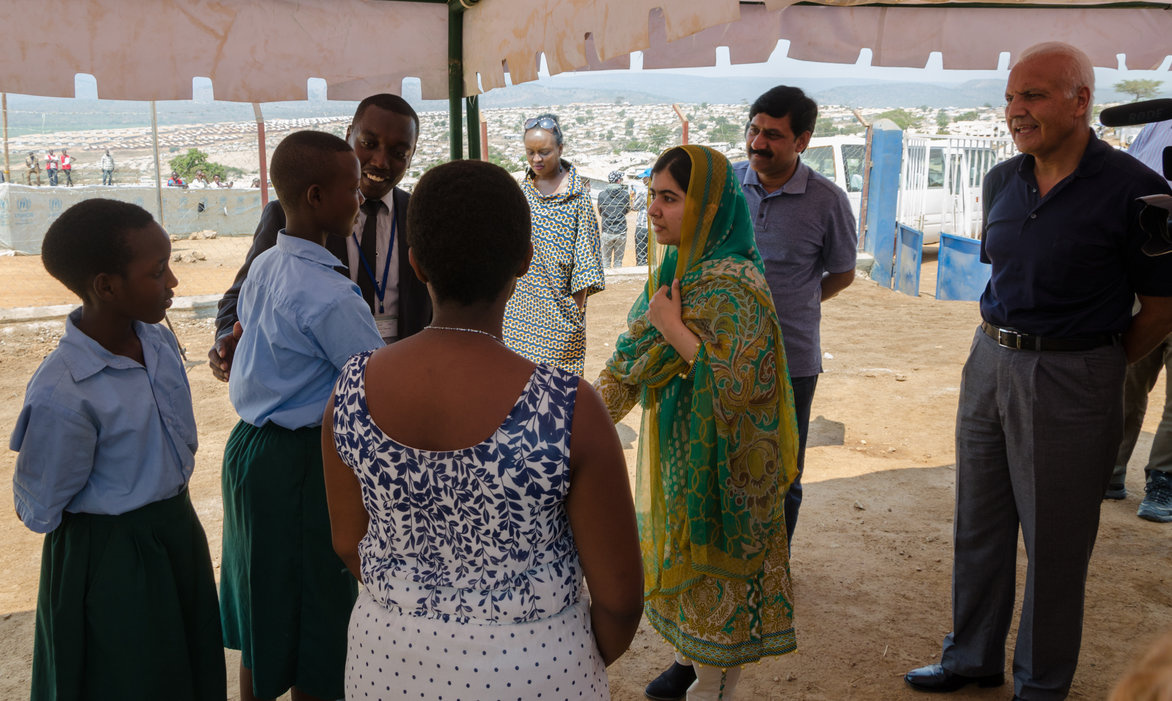
Malala talks to Burundian refugee girls, with Ngoga Aristarque [Mahama camp manager] and Saber Azam [UNHCR Representative in Rwanda] [Photo/ UNHCR – Shaban Masengesho]
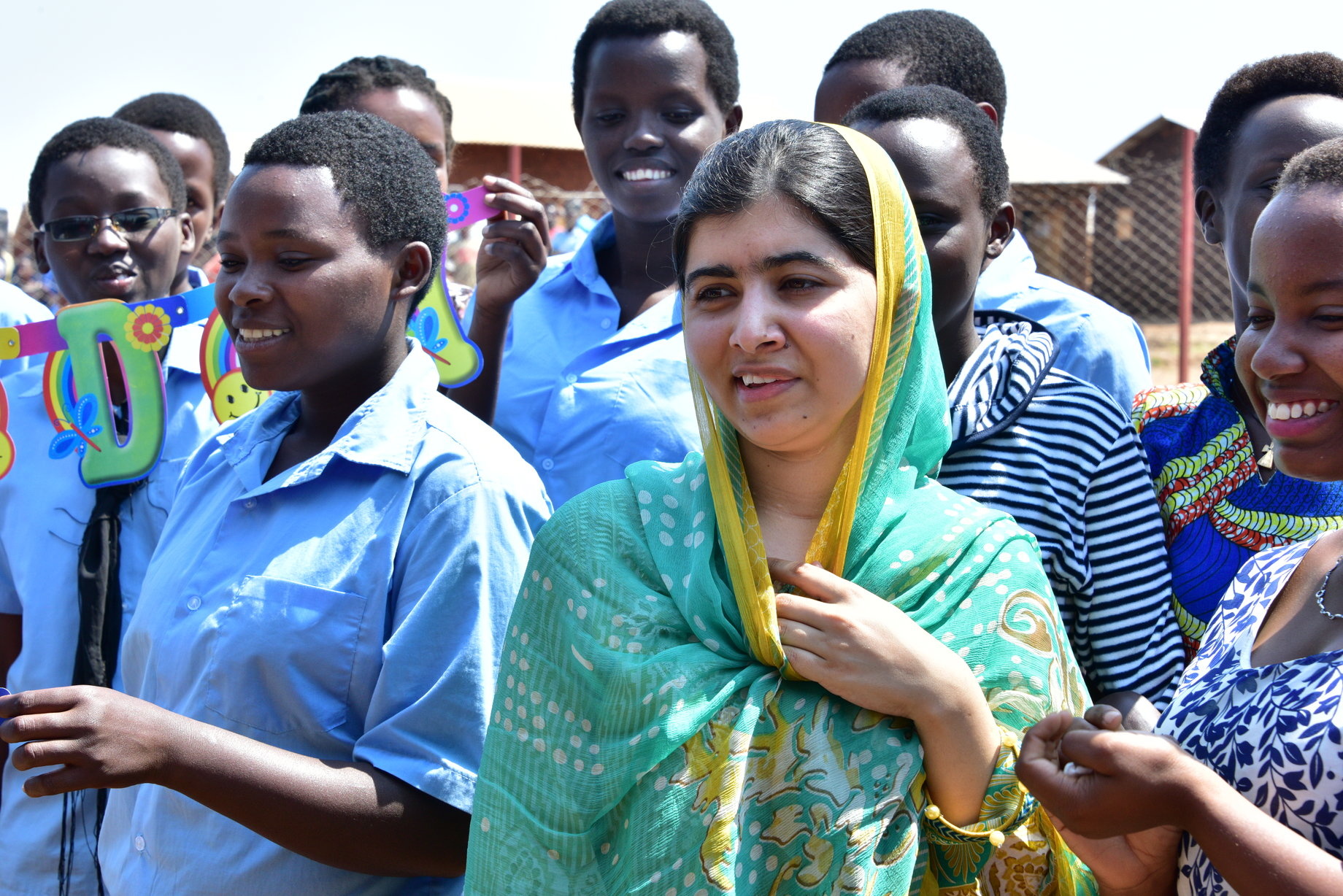
Burundian refugee girls celebrates Malala’s 19th Birthday with songs [Photo/ UNHCR – Shaban Masengesho]
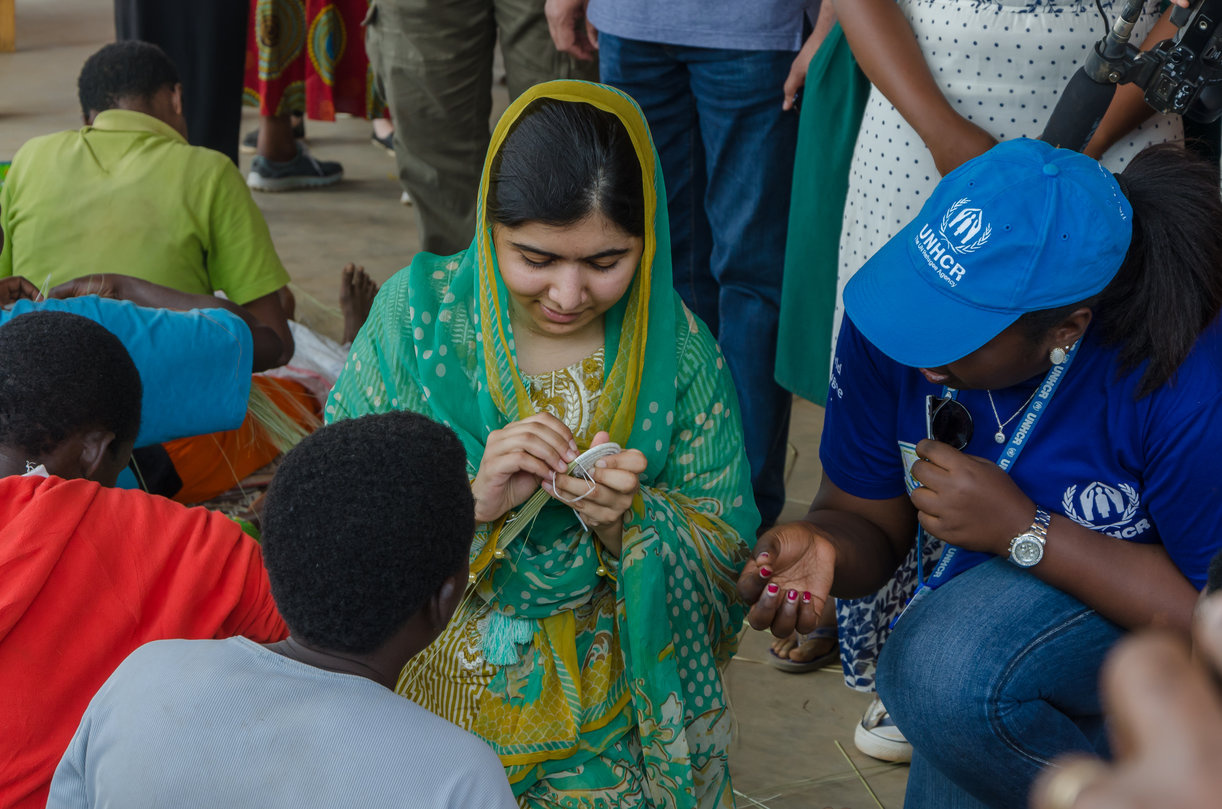
Malala joined handcraft women’s cooperative [Photo/ UNHCR – Shaban Masengesho]

